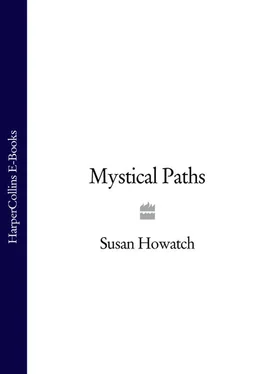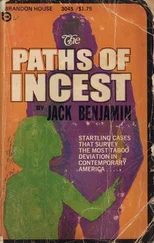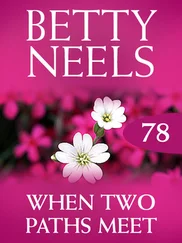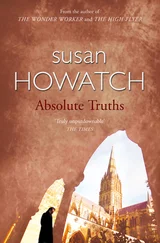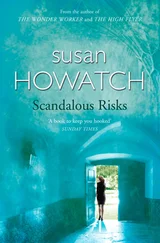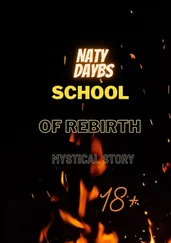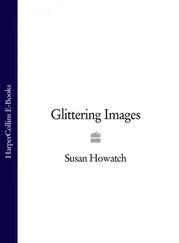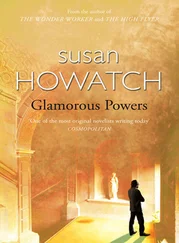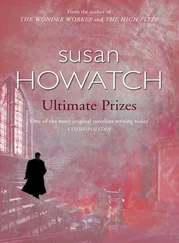Proud, arrogant, ancient, miserable and misguided, he glared at me in a pathetic plea for reassurance.
Taking his hand in mine I said: ‘Of course you’re right, Father. You always are.’
No doubt my mother would have made some very robust comment at that point.
But my mother was no longer there.
The next holidays I returned from school to find that a cottage was being built for my father in the grounds by the chapel. He said it would make it easier for him to be secluded. Then he said I could visit him whenever I wished because I was quite different from everyone else and he didn’t find my presence a strain. As an afterthought he added that he couldn’t bear to go on living at the main house now that my mother was no longer there; he’d never liked living there much anyway; his middle-class upbringing as a schoolmaster’s son had ensured he had never felt at ease in my mother’s county setting.
I was stunned. My father, educated on scholarships at public school and university, had appeared to fit neatly into my mother’s world. I had had no idea he had such a chip on his shoulder about class. I knew, of course, that his mother had been a parlourmaid, but my own mother had said how interesting that was and what a remarkable woman my unknown grandmother must have been to succeed in marrying ‘above her station’, so I had accepted my grandparents’ mésalliance as merely an unusual piece of family history. Now for the first time I saw that my father also had married ‘above his station’ and it occurred to me that my parents’ marriage too had been, in a less obvious way, a mésalliance which had caused problems.
I was still recovering from the shock that my father had never felt at ease in the home I loved when he began to explain to me his plan for ensuring that my inheritance was properly looked after: he intended to let the Home Farm and found a small religious community which would run the house and tend the grounds.
I disliked this scheme – though I said nothing for fear of upsetting him – but as time passed I realised how clever the plan was. Not only did I never have to worry about the property but I never had to worry that my father was failing to take care of himself when I was away. The members of the Community tended the garden, looked after the house and worshipped my father whenever they weren’t busy worshipping God. Their devotion was my passport to a normal life unburdened by abnormal anxieties.
I finished school, went up to Laud’s, my father’s old college at Cambridge, came down with my degree, dabbled disastrously with voluntary work and dabbled disastrously with Debbie. My father was still living as a recluse in his cottage, but now in 1966, nine years after my mother’s death, he had come to terms with his loss and his biggest problem was the old age he hated so much. But I could see he was looking forward intensely to my life at the Starbridge Theological College. He said more than once how much vicarious pleasure he would receive from my career as an ordinand.
I went to the Theological College. It was awful. It seemed to have very little to do with religion – religion as I understood it from my personal experience. I was reprimanded for using terms like the Light and the Dark and told I was flirting with Gnosticism. ‘What about St John?’ I said. ‘He talks of the Light and the Dark,’ but I was told tartly that I was Nicholas Darrow, not St John the Evangelist, and that it was the sin of pride to think I could flirt with the Gnostic heresy and get away with it. In vain I told my tutor that the Light and the Dark were code-names which I used to describe a reality which for me was as true as any reality acknowledged by a logical positivist. My tutor said I should beware of mysticism as mystics so often got into trouble with the Church.
The Church was exalted as a sort of idol. Enormous emphasis was put on teaching what was liturgically correct. Church history was taught in stupefying detail. A heavy-handed, outdated biblical theology still ruled the roost, the academic successor of the neo-orthodox thunderings of Karl Barth. Radical theology was ignored – and this was 1966, three years after John Robinson’s Church-shattering blockbuster Honest to God ! But the College refused to admit any shattering had taken place; the idol was not allowed to be chipped or cracked – or even renovated. Robinson was dismissed as ‘misguided’ and ‘no theologian’. There was certainly a case for propounding criticisms such as these, but I thought Robinson’s ideas, misguided or not, should at least have been debated. And I didn’t like this rampant ecclesiastical idolatry. What’s the Church anyway? Just a man-made institution. It’s God and Christ and the Holy Spirit that are important. I’m not saying we don’t need a man-made institution to deal with worldly matters. Obviously we do. And I’m not saying (in defiance of Anglo-Catholic ideology) that the Church has no numinous value and that holy traditions are unimportant. Obviously it has and they are. All I’m saying is that setting the Church up on a pedestal and worshipping it is wrong.
I also took a dim view of the way the College staff played down mysticism as they converted theology into just another academic subject such as history or English literature. Theology ought to be alive, vivid, related to real life, not a system debated by intellectuals. Did the mystic Julian of Norwich have a theology degree? Of course she didn’t. But she knew God. She had ‘gnosis’, special knowledge. She saw visions and she KNEW. But if she’d been unfortunate enough to attend that Theological College in the 1960s, the only vision she would have had would have been a vision of the bliss which marked the end of term.
Of course I couldn’t tell my father what a travesty the College was. Having run the place so successfully in the ‘forties he would have been deeply upset to know how far it had gone downhill. I learnt to keep quiet at College too because I didn’t want anyone thinking I was ‘unsuitable’ and trying to boot me out. One ordinand did say: ‘I think we should have courses on pastoral work and discuss things like sex,’ but he didn’t last long. Sex was the great unmentionable among the College staff because no one had the guts to discuss ethical issues realistically. As I mooched around, bored out of my mind, I wondered how the Church could survive the twentieth century when one of its most famous training-grounds had been so wholly smothered by the dead hand of an irrelevant past.
My boredom eventually produced the inevitable result: my interest in sex, damped down by the Debbie débâcle, began to revive.
I may have given the impression that I was formidably promiscuous but in fact by the standards of the mid –’sixties I was almost staid. My habit of going steady with one girl at a time – and usually only seeing her once a week – was my way of paying lip-service to my father’s belief that men should try to be more than mindless animals, so before the affair with Debbie I had changed girlfriends no more than once a year. However now, goaded on by the mind-blowing boredom of College life, I traded them in every six months. Doreen was a waitress at The Copper Kettle, Angie was a salesgirl at Boots and Tracy, like Debbie, was a little dolly-bird typist.
Naturally I went to great lengths to cover up this behaviour which was so very unacceptable for a would-be priest. Knowing my father would be wondering if I’d picked a successor to Debbie, I created a smokescreen by running a platonic romance in tandem with my sex exploits; this meant that I took a nice girl home and introduced her to my father so that he could see how virginal she was and deduce how well I was behaving. I need hardly add that I didn’t take home girls called Doreen, Angie and Tracy. I took home girls called Celia, Lavinia and Rosalind, girls I met from time to time at the tedious upper-class parties that for some reason people expected me to enjoy.
Читать дальше
